Reconoce su belleza
Valoración de la comunidad:
Última Actualización:
6 de Febrero de 2025 a las 15:13
Reconoce su belleza
Aprendizaje esperado: explora libros de cuentos.
Énfasis: escucha la lectura de libros de cuentos infantiles.
¿Qué vamos a aprender?
En esta sesión explorarás cuentos infantiles.
| Are you ready to start the class? | ¿Estas listo para comenzar con la clase? |
| Do you remember what story I told you last class? | ¿Recuerdas la historia que te conté en la última clase? |
| Yes, the late of Goldilocks | Si, el cuento de Ricitos de Oro. |
| Do you remember the characters of the story? | ¿Recuerdas los personajes de la historia? |
 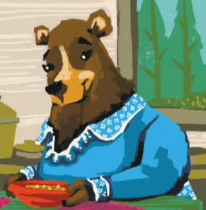 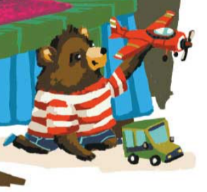 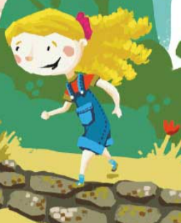 https://libros.conaliteg.gob.mx/20/P2LEA.htm?#page/122 |
|
| Now I am going to ask for your help to finish a few sentences. | Ahora voy a pedir tu ayuda para termina unas oraciones. |
| When Papa Bear realized someone had tasted his food, he felt… | Cuando Papá Oso se dio cuenta de que alguien había probado su comida se sintió |
| ¡Angry! | ¡Enojado! |
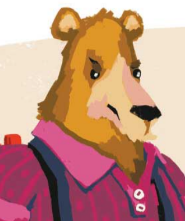 https://libros.conaliteg.gob.mx/20/P2LEA.htm?#page/126 |
|
| When Baby Bear saw that someone had broken his chair, he felt… | Cuando vio que alguien había roto su silla, Bebé Oso se sintió… |
| Sad! | ¡Triste! |
 https://libros.conaliteg.gob.mx/20/P2LEA.htm?#page/126 |
|
| When Goldilocks saw that the small bed was the perfect size for her, she felt… | Cuando vio que la cama pequeña era del tamaño perfecto para ella, Ricitos de Oro se sintió. |
| Happy! | ¡Feliz! |
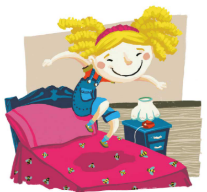 https://libros.conaliteg.gob.mx/20/P2LEA.htm?#page/125 |
|
Procura repasan los enunciados haciendo hincapié en las respuestas. No olvides que sad, happy y angry son sentimientos.
¿Qué hacemos?
| Would you like to know another story? | ¿Te gustaría escuchar otro cuento? |
| Great! | ¡Grandioso! |
Pero antes de pasar al siguiente cuento, conoce las partes de un libro.
| This is a book. | Éste es un libro. |
 https://www.freepik.es/vector-premium/diseno-conceptual-educacion-infantil_7156539.htm#page=1&query=libro%20abierto&position=6 |
|
| This is the front cover | Ésta es la portada. |
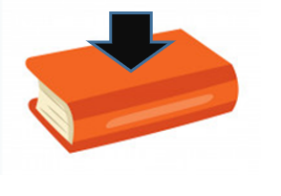 |
|
| This is the back cover. | Ésta es la contraportada. |
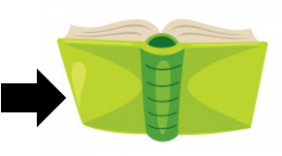 https://www.freepik.es/vector-premium/diseno-conceptual-educacion-infantil_7156539.htm#page=1&query=libro&position=44 |
|
| This is the spine. | Éste es el lomo. |
 |
|
| This is the title | Éste es el título |
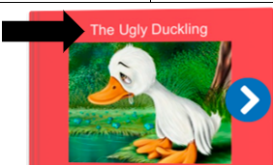 https://www.storyjumper.com/book/read/10207662/The-Ugly-Duckling# |
|
| This is the illustration | Ésta es la ilustración |
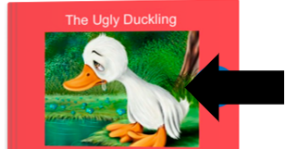 |
|
| This is the page | Ésta es la página. |
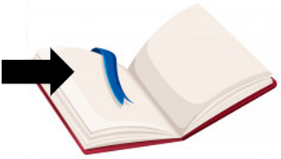 https://www.freepik.es/vector-gratis/conjunto-libro-sobre-fondo-blanco_4382366.htm#page=1&query=libro%20abierto&position=1 |
|
| Now, it’s time to know the characters of the story. | Ahora es tiempo de conocer a los personajes del cuento. |
| The Ugly Duckling | El patito feo |
| Mother Duck | Mamá pato |
| Ducklings | Patitos |
| Old woman | Una anciana |
| Hen | Gallina |
| Cat | Gato |
| Peasant | Campesino |
| Swan queen | La reina cisne |
| Read the story | Lee el cuento |
Es una versión adaptada del cuento: El patito feo del autor: Hans Christian Andersen
| A little duckling was very sad because he thought that he was ugly. | Un patito estaba muy triste porque pensaba que era feo. |
| His sisters and brothers did not want to play with him. | Sus hermanas y hermanos no querían jugar con él. |
| One day, he saw his reflection in the water and said “I am ugly” | Un día vio su reflejo en el agua y dijo: “soy feo” |
| He decided to leave home. | Decidió irse de casa. |
| The ugly duckling walked through the forest; suddenly he saw a cabin. | El patito feo caminó por el bosque; de repente vio una casa. |
| He saw an old woman that lived with a hen and a cat and decided to stay with them. | Vio a una mujer mayor con una gallina y un gato y decidió quedarse con ellos. |
| But he was not happy and soon left. | Pero no era feliz y pronto se fue. |
| Winter came. A peasant took the duckling to his house with his wife and children. | Llegó el invierno. Un campesino se lo llevó a su casa con su esposa y sus niños. |
| But the duckling was afraid of the children and ran away. | Pero el patito feo tenía miedo de los niños y se fue. |
| Finally, spring arrived. | Finalmente llegó la primavera. |
| One day, the duckling saw a beautiful female swan swimming nearby. | Un día el patito vio a una hermosa cisne hembra. |
| She was the swan queen. | Era la reina cisne. |
| But the duckling remembered that he was ugly and felt ashamed. | Pero el patito recordó que era feo y se sintió avergonzado. |
| So, he bent his neck to hide his face and then, he saw his own reflection in the water. | Por lo tanto, se agachó para esconder su cara y al hacerlo, vio su propio reflejo en el agua. |
| He was surprised because he was not an ugly duckling anymore. | Se sorprendió porque ya no era un patito feo. |
| He was now a handsome young swan. | Ahora era un guapo cisne joven. |
| He was never really a duckling; he had always been a swan. | Nunca fue un patito, siempre había sido un cisne. |
| That was the reason he was different from the other ducklings. | Esa era la razón por la que era diferente a los otros patitos. |
| Sometime later, he married the beautiful Swan Queen and they were very happy. | Tiempo después, se casó con la hermosa reina cisne y fueron muy felices. |
| The end | Fin. |
| Did you like the story? | ¿Te gustó el cuento? |
Realiza la siguiente actividad relacionada con el cuento. Coloca estas imágenes en el orden correcto.
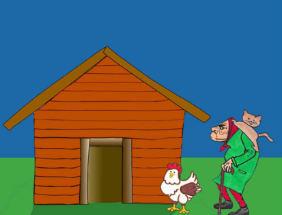  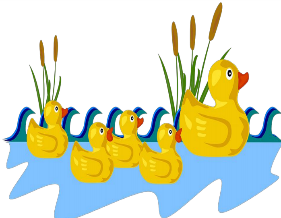 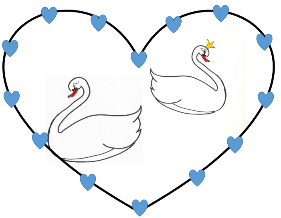 |
|
| Los momentos representados son: | |
| Finally, spring arrived. | Finalmente llegó la primavera. |
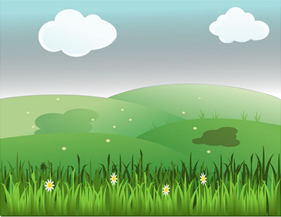 |
|
| He saw an old woman that lived with a hen and a cat. | Vio a una mujer mayor con una gallina y un gato. |
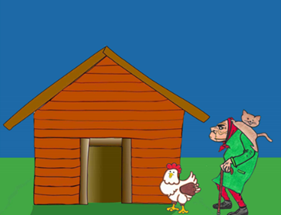 |
|
| And he married the beautiful swan queen | Se casó con la hermosa reina cisne |
 |
|
| His brothers and sister didn´t want to play with him. | Sus hermanas y hermanos no querían jugar con él. |
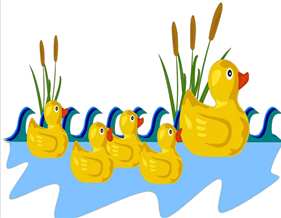 |
|
| Do you remember the feelings of the characters of both the story of Goldilocks and the story of The ugly duckling? | ¿Recuerdas los sentimientos de los personajes de los cuentos Ricitos de Oro y El patito feo? |
Relaciona a algunos de los personajes con algunas de sus emociones expresadas en los cuentos.
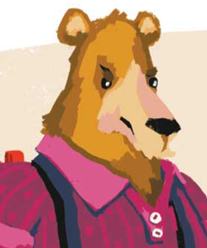 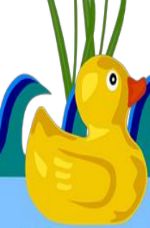 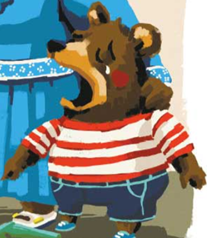 |
|
| Papa Bear was _____ because someone had tasted his food! | Papá Oso estaba _______ porque alguien había probado su comida. |
| Correct! Papa bear was ANGRY because someone had tasted his food. | ¡Correcto! Papá Oso estaba enojado porque alguien había probado su comida. |
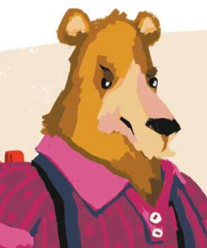  |
|
| The Ugly Duckling felt _____ because he saw his own reflection in the water and saw that he was now a handsome young swan. | El patito feo se sintió _____ porque vio su propio reflejo en el agua y se dio cuenta de que se ahora era un cisne guapo y joven |
| Very good! The Ugly Duckling felt HAPPY because he saw his own reflection in the water and saw that he was now a handsome young swan. | ¡Muy bien! El patito feo se sintió feliz porque vio su propio reflejo en el agua y se dio cuenta de que se ahora era un cisne guapo y joven. |
  |
|
| Baby Bear was_____ because somesection had broken his chair. | Bebé Oso estaba _____ porque alguien había roto su silla. |
| Excellent! Baby Bear was sad because someone had broken his chair. | ¡Excelente! Bebé Oso estaba triste porque alguien había roto su silla |
  |
|
El reto de hoy:
Actividad para realizar en casa.
Elabora un cuaderno de sentimientos.
| You can choose some characters from the stories. | You can choose some characters from the stories. |
| Draw them and write down their feelings. | Dibújalos y escribe abajo sus sentimientos. |
| You can even write full sentences | Puedes incluso escribir oraciones completas. |
| Por ejemplo: | |
| Baby bear is sad. | Bebe Oso está triste. |
Si no prefieres escribir, entonces puedes dibujar y decir en voz alta el sentimiento que lo caracteriza.
Espero que hayas aprendido mucho y que te hayas divertido.
Recuerda que es muy importante que todo lo que estudiaste en esta sesión lo sigas poniendo en práctica.
| See you soon! | ¡Nos vemos pronto! |
Si te es posible consulta otros libros y comenta el tema de hoy con tu familia. Si tienes la fortuna de hablar una lengua indígena aprovecha también este momento para practicarla y plática con tu familia en tu lengua materna.
¡Buen trabajo!
Gracias por tu esfuerzo.
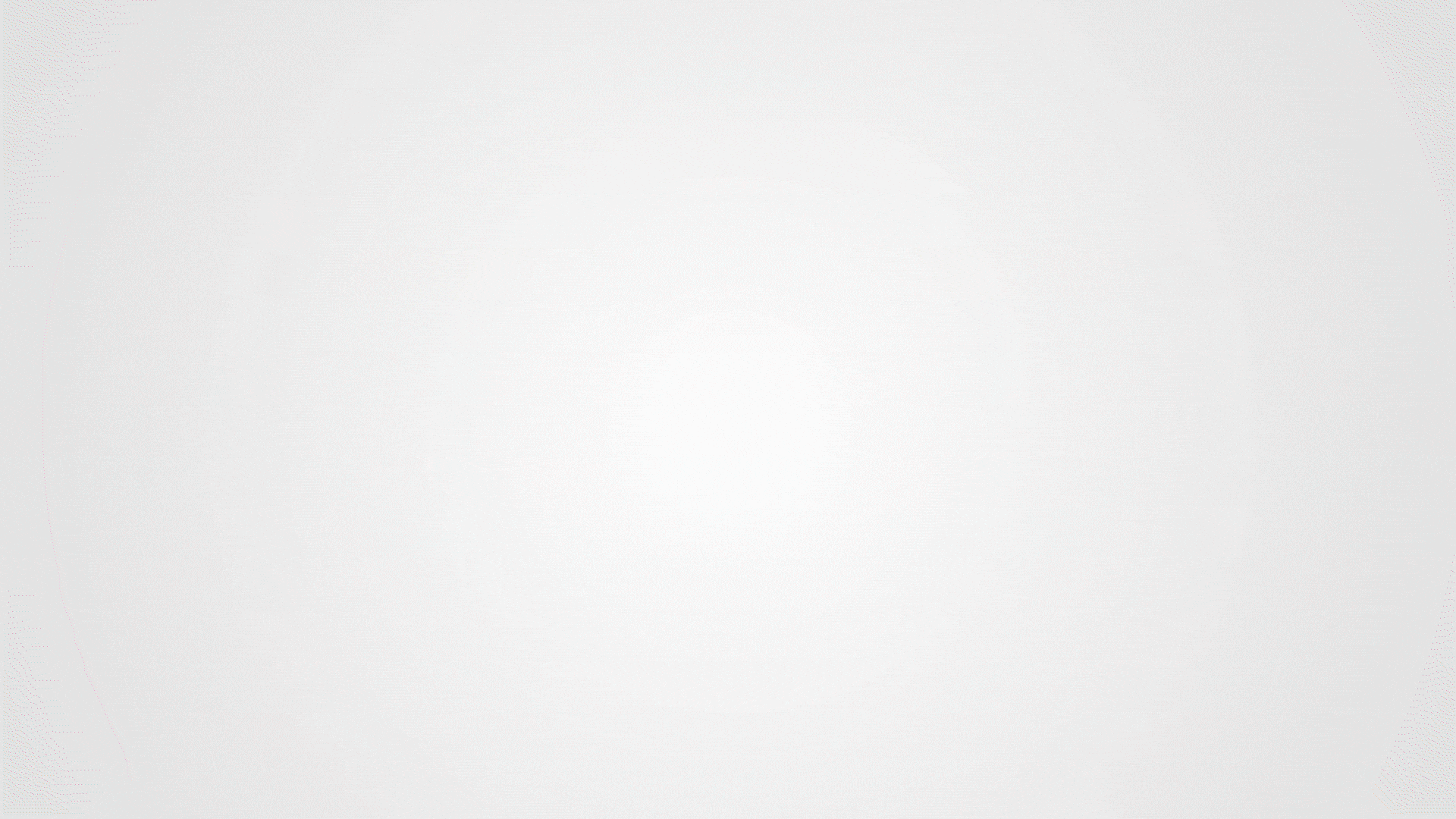

Login to join the discussion